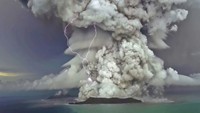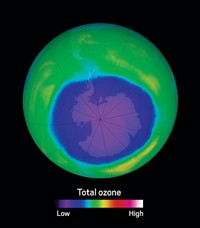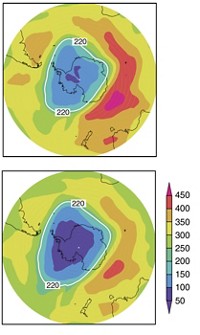Advertisement
Grab your lab coat. Let's get started
Welcome!
Welcome!
Create an account below to get 6 C&EN articles per month, receive newsletters and more - all free.
It seems this is your first time logging in online. Please enter the following information to continue.
As an ACS member you automatically get access to this site. All we need is few more details to create your reading experience.
Not you? Sign in with a different account.
Not you? Sign in with a different account.
ERROR 1
ERROR 1
ERROR 2
ERROR 2
ERROR 2
ERROR 2
ERROR 2
Password and Confirm password must match.
If you have an ACS member number, please enter it here so we can link this account to your membership. (optional)
ERROR 2
ACS values your privacy. By submitting your information, you are gaining access to C&EN and subscribing to our weekly newsletter. We use the information you provide to make your reading experience better, and we will never sell your data to third party members.
Environment
Arctic Ozone Loss Qualifies As A Hole
Ozone depletion in the stratosphere over the Arctic deepens, matching that of the Antarctic
by Elizabeth K. Wilson
October 3, 2011
| A version of this story appeared in
Volume 89, Issue 40
For the first time, seasonal ozone loss in the stratosphere over the Arctic qualifies as a full-blown “ozone hole.” Although winter-spring ozone holes over the Antarctic, associated with extreme cold and chlorofluorocarbons and other ozone-depleting chemicals, have been documented since the 1980s, ozone loss over the milder Arctic had been far less dramatic. An international team led by Gloria L. Manney at NASA’s Jet Propulsion Laboratory now shows that in 2011 the amount of ozone loss in the Arctic was comparable to that in some early Antarctic ozone holes. (Nature, DOI: 10.1038/nature10556). The cause, they believe, stems from an unusually lengthy cold period—conditions that promote formation of stratospheric clouds, providing surfaces on which reactions that convert chlorine into ozone-destroying species such as ClO take place. The researchers comment that atmospheric behavior in the Arctic is still poorly understood, and thus scientists are unable to predict if or when another major ozone loss will occur there.





Join the conversation
Contact the reporter
Submit a Letter to the Editor for publication
Engage with us on Twitter